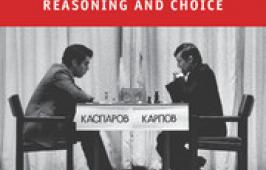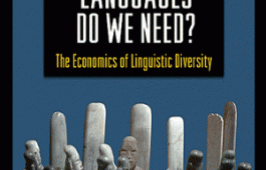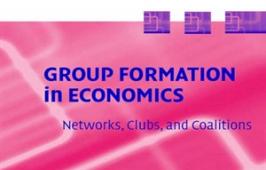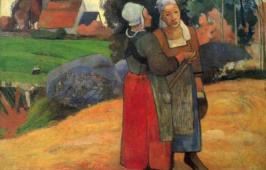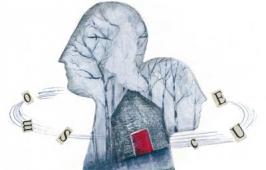Social Choice
Social Choice theory is the study of collective decision processes, their procedures and their consequences on welfare. It studies questions such as how to aggregate individual preferences into social preferences; what the properties of different voting systems are; what the resource allocation mechanisms are that take into account the incentives of the participants. The aims of Social Choice are twofold: first, to study particular models that are important for its application to real life (such as the study of the outcomes obtained by run-off voting systems); and second, to take a normative point of view in designing ideal systems (such as the design of decentralized allocation mechanism for the allocation of public goods or institutional design). The tools used range from axioms to game theory.
Related posts
|
Working paper Pairwise majority voting over alternative nonlinear income tax schedules is | READ MORE ... |
Article A single proposer has the opportunity to generate a surplus by buying out the | READ MORE ... |
Article As societies are increasingly concerned with risks, it is important to evaluate | READ MORE ... |
|
From theory to application Coordination is a vital element of human life, whether it be greeting each | READ MORE ... |
Social Choice The Dutch Social Choice Colloquium is a bi-monthly event organized by the Dutch | READ MORE ... |
Working paper In this paper we develop a private-collective model of voluntary public | READ MORE ... |
|
Working paper Most studies of the voting literature take place in the arrovian framework, in | READ MORE ... |
Article In status competition studies, the utility of heterogeneous individuals | READ MORE ... |
Article In this paper we analyse the problem of vote swapping in representative | READ MORE ... |
|
Working paper Individuals derive benefits from their connections, but these may, at the same | READ MORE ... |
Working paper We model a bipartite network in which links connect agents with public goods. | READ MORE ... |
Working paper The objective of the paper is to analyze the formation of social networks where | READ MORE ... |
|
Article We consider an economy with multiple private goods and multiple public goods. | READ MORE ... |
Working paper In many areas of social life, individuals receive information about a | READ MORE ... |
Working paper We consider strategy-proof social choice functions operating on a rich do- main | READ MORE ... |
|
Working paper We introduce two pieces of information, denoted memes, into a diffusion process | READ MORE ... |
Book In everyday life we must often reach decisions while knowing that the outcome | READ MORE ... |
Article We propose a generalization of the probabilistic voting model in two-candidate | READ MORE ... |
|
Article In this paper, we present a contest success function (CSF), which is | READ MORE ... |
Article When not all objects are acceptable to all agents, maximizing the number of | READ MORE ... |
Working paper The stardom system characterizes creative industries: the demand and revenues | READ MORE ... |
|
UniCredit & Universities Foundation, launches the fifth UWIN Best Paper | READ MORE ... |
Book "A beautiful dozen. Twelve papers presented in 20 years of meetings of the | READ MORE ... |
Article We study efficiency and fairness properties of the equal cost sharing with | READ MORE ... |
|
Working paper We study the effects that school choice mechanisms and school priorities have | READ MORE ... |
Working paper We propose a notion of r-rationality, based on the idea that the
choices of | READ MORE ... |
Article We analyze the complexity of vote trading problems with equal-sized voting | READ MORE ... |
|
This mini-course was presented by Myrna Wooders at the 2014 International Game | READ MORE ... |
Working paper Studies in the social capital literature have documented two stylised facts: | READ MORE ... |
Working paper The paper analyzes the role of the structure of communication - i.e. who is | READ MORE ... |
|
Working paper We provide characterizations of the set of outcomes that can be achieved by | READ MORE ... |
Working paper We provide a tractable concept that can be used to study the influence of the | READ MORE ... |
Working paper The explosion in online social networks motivates an enquiry into their | READ MORE ... |
|
Working paper In recent literature a relevant problem has been the relationship between | READ MORE ... |
From theory to application How do agents form new connections? Some introspection should convince most | READ MORE ... |
Working paper We investigate the role of manipulation in a model of opinion formation. Agents | READ MORE ... |
|
Working paper We propose a simple criterion to compare generalized median voter schemes | READ MORE ... |
Working paper Collective decision making problems can be seen as finding an outcome that is | READ MORE ... |
Working paper Single-basined preferences generalize single-dipped preferences by allowing for | READ MORE ... |
|
Working paper What is a good incentive-compatible policy when one wants to respect individual | READ MORE ... |
Working paper We analyze the Condorcet paradox within a strategic bargaining model with | READ MORE ... |
Article Consider a setting in which agents can take one of two ordered actions and in | READ MORE ... |
|
Book In the global economy, linguistic diversity influences economic and political | READ MORE ... |
Book Broad and diverse ranges of activities are conducted within and by organized | READ MORE ... |
Working paper We provide the first theoretical analysis of altruism in networks. Agents are | READ MORE ... |
|
Article Extensive social choice theory is used to study the problem of measuring group | READ MORE ... |
Article Kin selection theorists argue that evolution in social contexts will lead | READ MORE ... |
Article The “mean voter theorem” implies that candidates should choose identical policy | READ MORE ... |
|
Article We propose a generalization of the probabilistic voting model in two-candidate | READ MORE ... |
Working paper In this work I analyze the effect of electoral uncertainty on issue trespassing | READ MORE ... |
Article We study a stochastic model of influence where agents have “yes” or “no” | READ MORE ... |
|
Article A social choice function may or may not satisfy a desirable property depending | READ MORE ... |
From theory to application Life in developing countries is subject to much higher risk than in | READ MORE ... |
Article We provide the first empirical application of a new approach proposed by Lee ( | READ MORE ... |
|
From theory to application Diversity, Integration and Cultural Evolution: Recent Theoretical Approaches and Policy Perspectives
Diversity is a key and pervasive aspect of modern societies. In European | READ MORE ... |
Working paper The division problem under constraints consists of allocating a given amount of | READ MORE ... |
Working paper The objective of the paper is to analyze the formation of social networks where | READ MORE ... |
|
Working paper We study direct democracy with population uncertainty. Voters’ participation is | READ MORE ... |
Working paper We provide a generalization of Harsanyi (1955)’s aggregation theorem to the | READ MORE ... |
Working paper We propose a way to compare the extent of preference misrepresentation between | READ MORE ... |
|
Working paper Rules of k names are frequently used methods to appoint individuals to office. | READ MORE ... |
Working paper We investigate the role of manipulation in a model of opinion formation where | READ MORE ... |
Working paper This paper investigates the private provision of public goods in segregated | READ MORE ... |
|
Working paper We study a stochastic model of influence where agents have “yes” or “no” | READ MORE ... |
Article Individual disagreements are assumed to be reflected in the preferences. | READ MORE ... |
Working paper Using a natural voting experiment in Switzerland that encompasses a 160-year | READ MORE ... |
|
Working paper We show that personality traits mediate the effect of income on Life | READ MORE ... |
Working paper We offer complete characterizations of the equilibrium outcomes of two | READ MORE ... |
Working paper The paper proposes necessary and sufficient conditions for the natural | READ MORE ... |
|
Working paper Voters assign a score to each of the many available alternatives. We study the | READ MORE ... |
Working paper Although neural networks are commonly encountered to solve classification | READ MORE ... |
Working paper Behavioral economics has shaken the view that individuals have well-defined, | READ MORE ... |
|
Working paper The paper concerns a dynamic model of influence in which agents have to make a | READ MORE ... |
Working paper This paper presents a new theory of trade policy-making based on the | READ MORE ... |
Working paper This paper shows how, under threat of revolution, a nation’s elite are able to | READ MORE ... |
|
Working paper This article establishes versions of Moulin’s [On strategy-proofness and single | READ MORE ... |
Working paper In an incentivized experiment we identify a powerful and ubiquitous bias: in- | READ MORE ... |
Working paper A well-known model in sociology and marketing is that of opinion leadership. | READ MORE ... |
|
Working paper In this paper, we present a general statistical framework within which we can | READ MORE ... |
Working paper This article establishes versions of Moulin’s [On strategy-proofness and single | READ MORE ... |
Working paper There is no consensus on the properties of voting power indices when there are | READ MORE ... |
|
Working paper Social networks representing the pattern of social interactions - who talks to | READ MORE ... |
Working paper We analyze the problem of choosing the most appropriate method for apportioning | READ MORE ... |
Working paper We generalize a yes-no model of influence in a social network with a single step | READ MORE ... |
|
Working paper We analyze the aggregation problem without the assumption that individuals and | READ MORE ... |
Working paper International agreements about transnational issues are difficult to reach, as | READ MORE ... |
Working paper We study the stability and the stability index of the meet game form defined on | READ MORE ... |
|
Working paper This paper studies whether conformism behavior affects individual outcomes in | READ MORE ... |
Working paper We characterize all preference pro¯les at which the approval (voting) rule is | READ MORE ... |
Working paper This paper examines a perfectly discriminating contest (all-pay auction) with | READ MORE ... |
|
Working paper Social interactions are at the essence of societies and explain the gathering | READ MORE ... |
Working paper We analyse the redistribution of a resource among agents who have claims to the | READ MORE ... |
Working paper This article deals with cooperation issues in international pollution problems | READ MORE ... |
|
Working paper The paper proposes a model of household behavior with both private and public | READ MORE ... |
Working paper We study information aggregation in large elections. With two candidates, | READ MORE ... |
Working paper A power system is modeled by an interaction form, the solution of which is | READ MORE ... |
|
Working paper We study the structure of unstable local effectivity functions defined for n | READ MORE ... |
Working paper This paper analyzes characteristics of the informal economy in Poland in the | READ MORE ... |
Working paper Democratic systems are built, with good reason, on majoritarian principles, but | READ MORE ... |
|
Working paper We present a new version of the overtaking criterion, which we call generalized | READ MORE ... |



